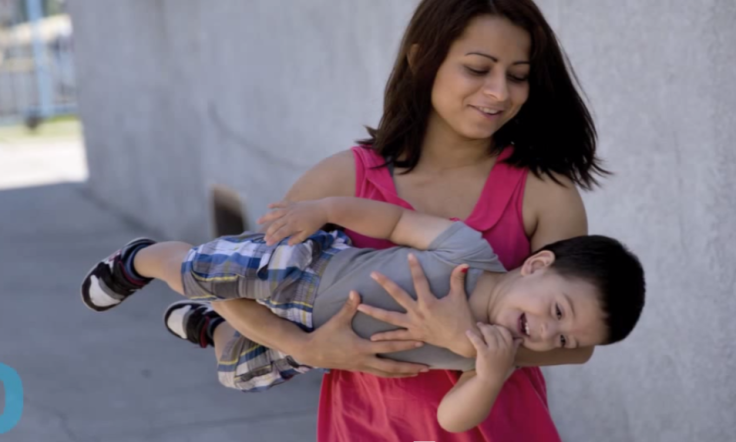
A one-year-old Honduran baby will avoid deportation and be allowed to stay in the U.S. to apply for residency, the AP reports. The boy, Joshua Tinoco, crossed the border with his his mother Dunia Bueso last year along with a surge of Central American migrants. While Bueso, now 18, was allowed to stay , Tinico was prioritized for deportation. According to his lawyer Joseph Weiner, it’s unclear why Immigration and Customs Enforcement (ICE) changed their mind, but he’s happy that they reversed the decision.
“I am very happy that the government decided not to waste their resources prosecuting, pursuing a one-year-old baby,” Weiner told the AP. “This should have been a non-issue.”
Tinico and Dunia’s represent some of the most difficult cases currently facing ICE and the Department of Homeland Security, who want to be tough on undocumented migrants and send them home. As then-Secretary of State Hillary Clinton told CNN’s Christiane Amanpour in 2014, the administration wanted to deport unaccompanied migrants quickly.
“They should be sent back as soon as it can be determined who responsible adults in their families are,” Clinton said, speaking about the migrants in general and not Tinico or Dunia’s case specifically.
The problem? Dunia fled Honduras after both of her parents died, so there’s no safe haven for her in her home country. She was 17 when she arrived, and qualified for a program aimed at youth who suffer abuse or abandonment. Many immigrants are applying for permission to stay under that same program. Other Central American migrants sometimes apply for asylum, but the criteria for that immigration status is more strict. Abuse and abandonment alone do not make minors eligible for asylum. Not only do they need to have a credible fear for their life if they return home, but they also have to prove that they’re part of a discriminated group. Past cases have included the migrant’s religion, sexual orientation and, in exceptional circumstances, their gender or profession.
Tinico and Dunia are extremely lucky because the have a lawyer. Of the unaccompanied minors who arrived in the U.S. in 2014, those with legal representation have been seven times as likely to avoid removal, according to data obtained by Politico .
© 2025 Latin Times. All rights reserved. Do not reproduce without permission.




